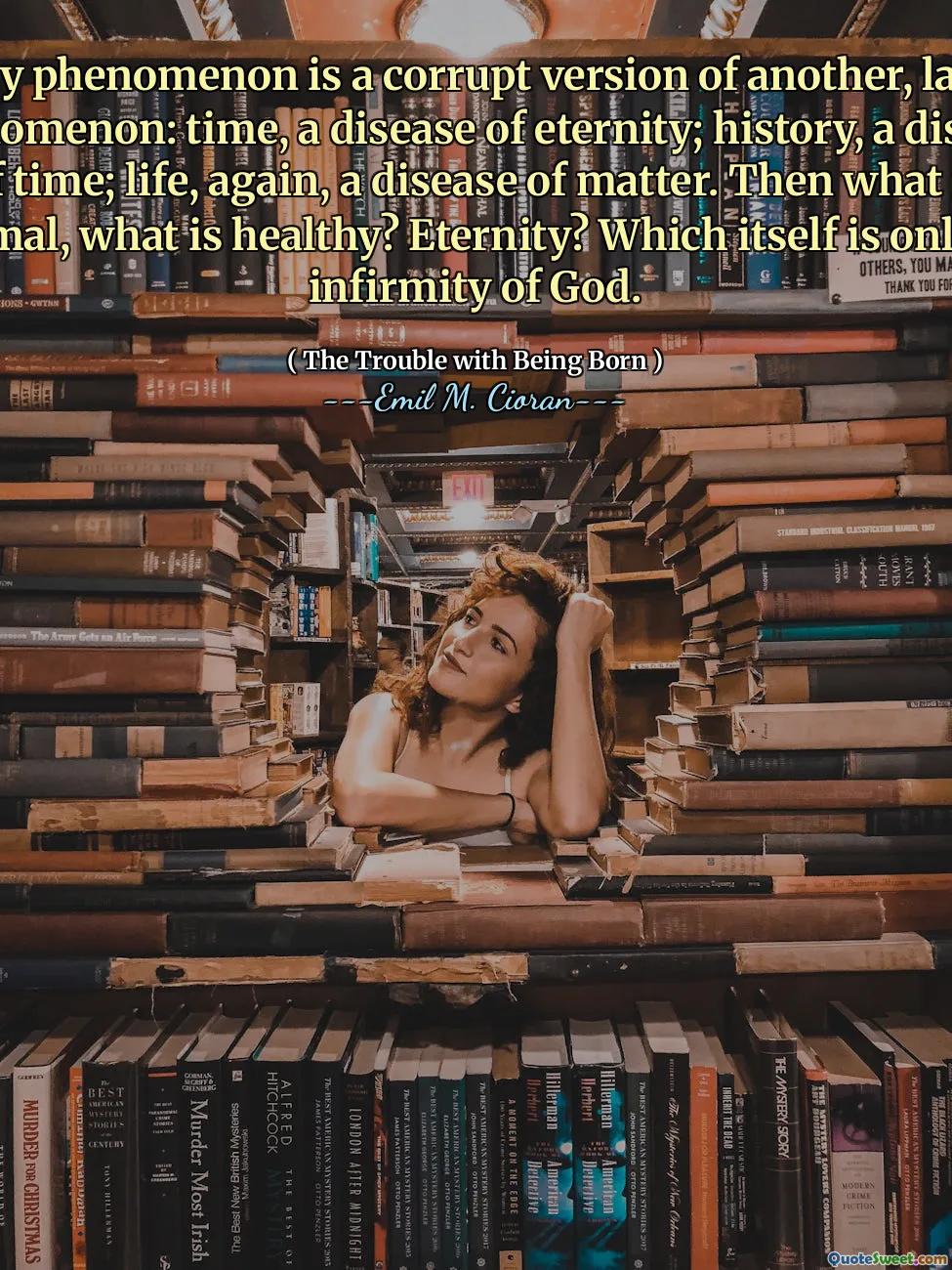
Every phenomenon is a corrupt version of another, larger phenomenon: time, a disease of eternity; history, a disease of time; life, again, a disease of matter. Then what is normal, what is healthy? Eternity? Which itself is only an infirmity of God.
This quote by Emil M. Cioran delves into the complex hierarchy of existence and the nature of phenomena. At its core, it suggests that what we perceive as individual phenomena—time, history, life—are merely distorted or corrupted reflections of more fundamental and grander realities. Time, often seen as linear and universal, is depicted as a disease afflicting the concept of eternity. This implies that our understanding of infinite existence is tainted by the limitations of temporal human perception. History, which records human experiences and events, is presented as a flawed manifestation of the broader continuum of time, highlighting how our narratives are temporary and perhaps futile in grasping the true nature of reality. Life, as a tangible phenomenon rooted in matter, is characterized as a degenerative manifestation of a higher principle—perhaps the eternal or the divine.
The provocative question posed—'Then what is normal, what is healthy?'—forces us to reconsider the very essence of well-being and stability. The suggestion that eternity itself is merely an 'infirmity of God' challenges conventional conceptions of divine perfection. Instead of viewing eternity as an ideal state, it is seen as a form of weakness or ailment, implying that permanence is inherently flawed or incomplete. This perspective elevates the idea that the pursuit of eternal stability may be inherently misguided, as even the divine might be subject to infirmity or imperfection.
Overall, the quote evokes a philosophical meditation on the transient and corrupted nature of all phenomena and questions the very notions of normalcy and health within the cosmic scale. It taps into existential themes of impermanence, the limitations of perception, and the profound ambiguity of what constitutes the ultimate or divine truth. Such reflections encourage a humble acknowledgment of the provisional nature of human understanding and the enduring mystery of existence.






